Activism is not about creating a one-time hit or making prime time headlines, it’s about creating empathy through storytelling and strategy …
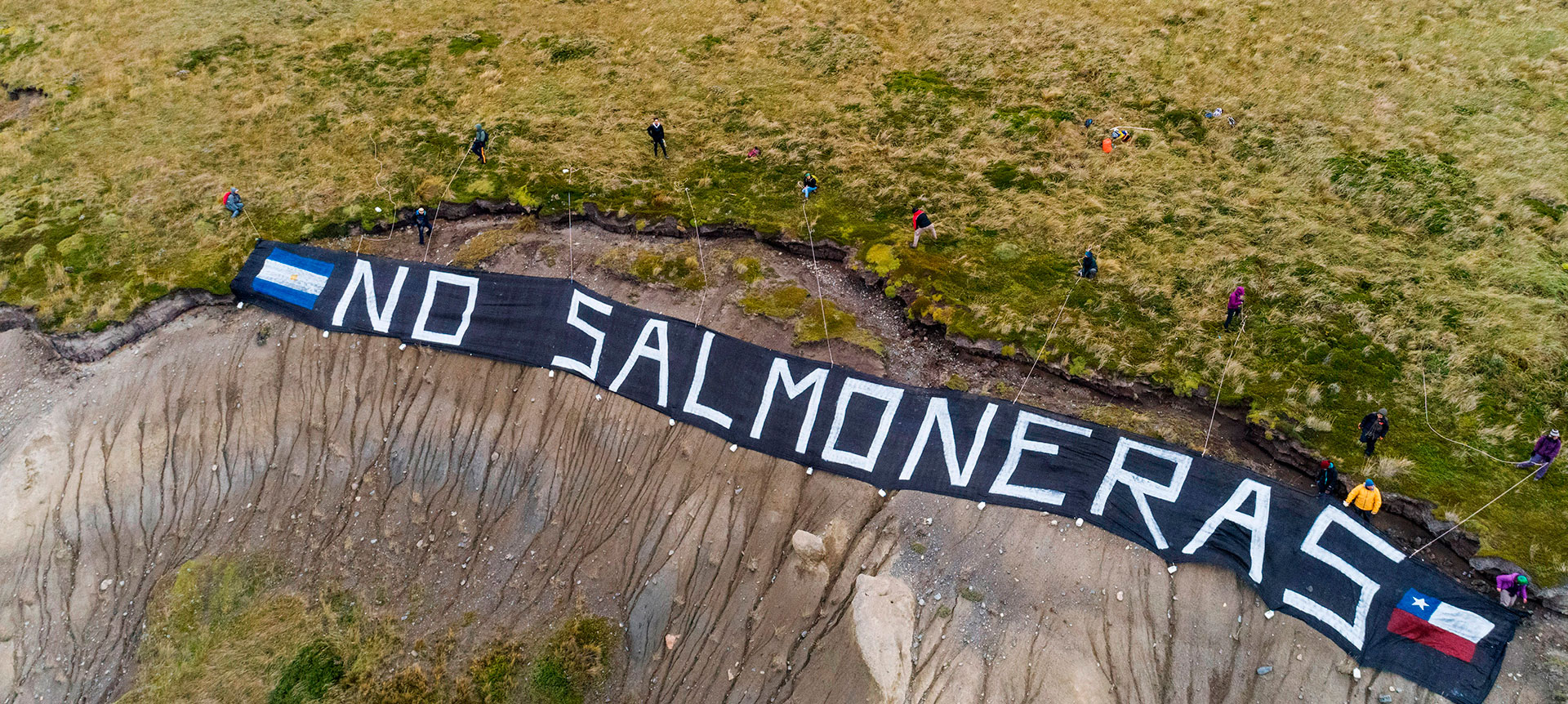
10.11.2023
WORDS BY MARTINA SASSO
Once upon a time at the end of the world
Activism is not about creating a one-time hit or making prime time headlines, it’s about creating empathy through storytelling and strategy, it’s about inventing the most compelling story and developing a set of tools that can bring that story to life at certain strategic times.
INDEX
1. In the marine waters of the Northwest, these orca whales prey exclusively on fish—and not just any fish: salmon, and preferentially Chinook, the biggest salmon in the Pacific. In this, these orcas (sometimes called Southern Residents) have plenty in common with some of the other longtime native residents of this place: the Lummi Nation.
2. In the Lummi language, the local orcas are called Qwe ‘lhol mechen.
3. When the Lummi first came to this Douglas fir and cedar cloaked land and its glacially carved bays and inlets, the Southern Residents were here to greet them.
I would like to share the story and insights of how a community in Tierra del Fuego, Antártida, e Islas del Atlántico Sur (TFAIAS) played a crucial role in the enactment of a bill that prohibited open-net salmon farming. As a result, Argentina became the first country to ban this industry in its waters.
Every good plan starts with a secret meeting. In a secluded cottage nestled within the Ushuaia mountains, we assembled a diverse group including scientists, activists, engaged local residents, lawyers, representatives from the Chilean community of Chiloé, and seasoned NGOs committed to challenging the salmon industry, such as Greenpeace and Oceana. At the time, we knew nothing about salmon farming, it was a new industry in our country, so we had to learn fast and design a smart action plan.
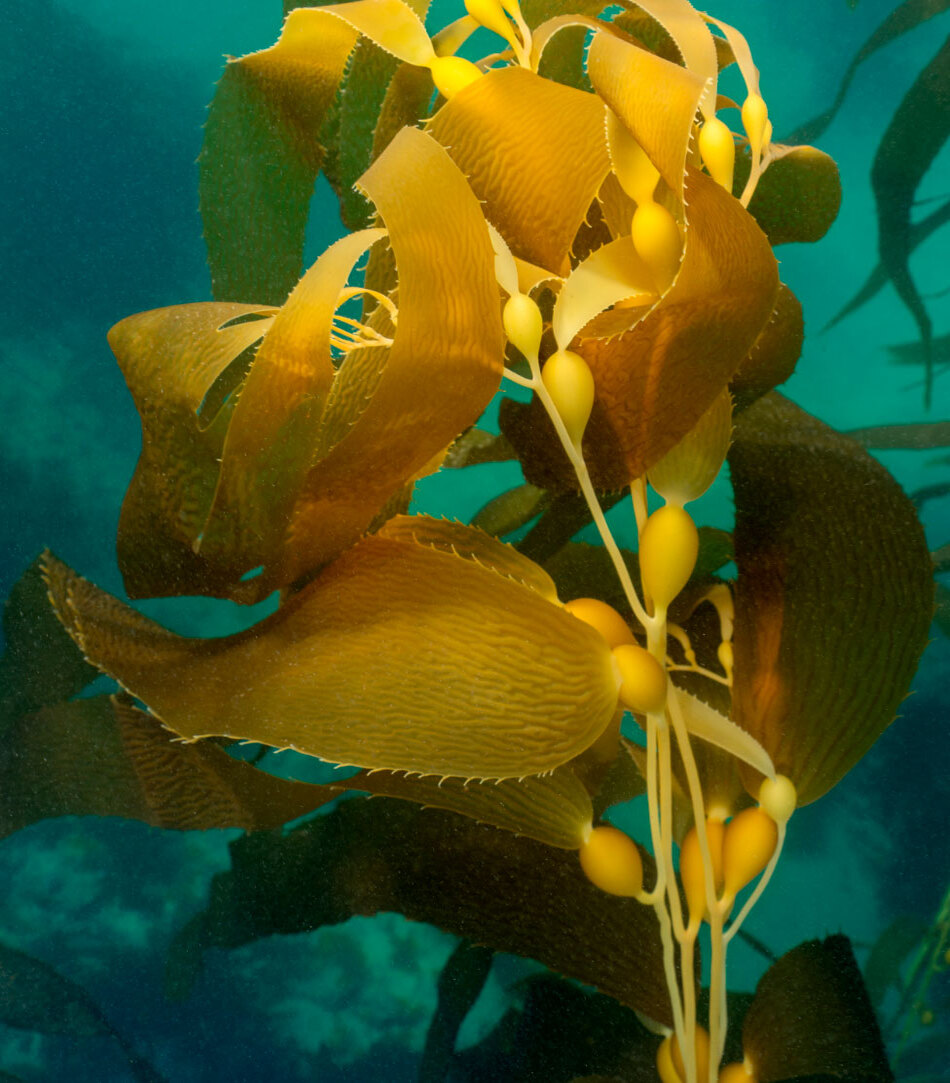
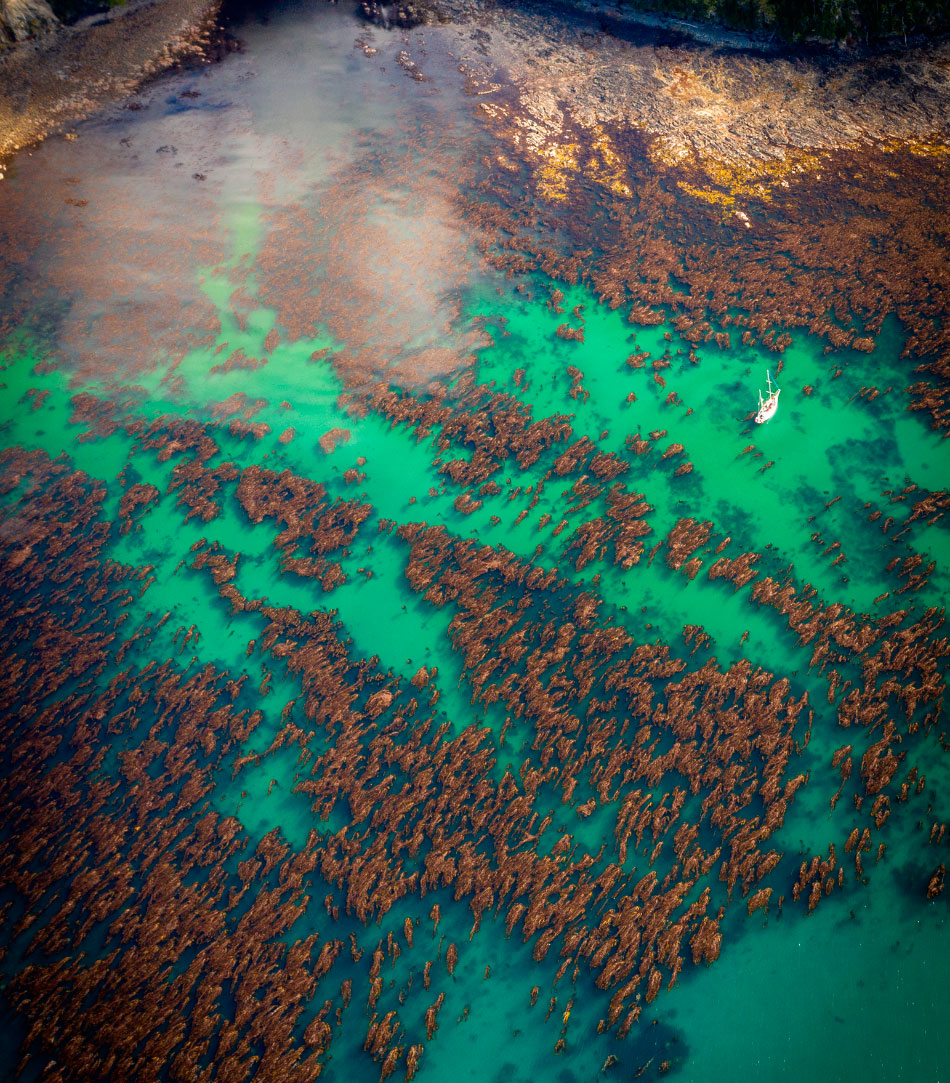

_
CREDITS
Photo by Francisco Ferraro @fferrarophotography

_
CREDITS
Photo by Francisco Ferraro @fferrarophotography
During that day we all learned about the terrible environmental impacts caused by this industry, the social and cultural damage it provokes and the unhealthy food it produces. That very night we came up with a bunch of arguments that could make the perfect narrative to drive change.
While our team of lawyers were analysing all available public information, documents and agreements between Argentina and Norway, we conducted a very simple survey asking Argentines what they thought about raw salmon. Most of them thought that this fish was a species native to our country or, at best, thought that it was fished elsewhere in the world.
Most of the interviewees agreed that salmon was a delicious, expensive and premium fish, but above all a healthy food.
We knew that only a small part of society cared about the environment, yet we knew that the vast majority cared about their own health.
We had to come up with a powerful campaign. We wanted to raise awareness about the unhealthy effects of eating salmon and we had to find the right voices to represent us, sometimes the messenger is more important than the message. So who are the ones teaching us and recommending what to eat every day? The chefs.
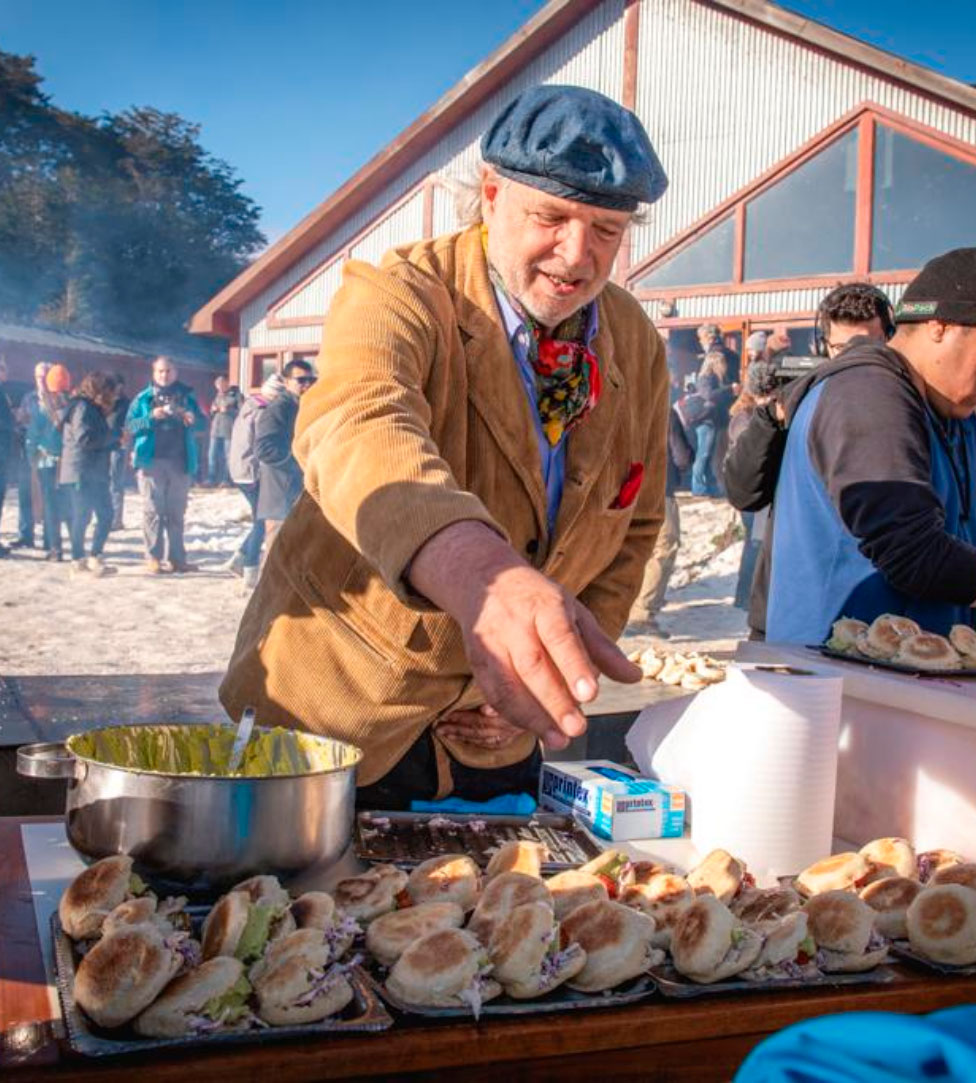

We partnered with Patagonia Argentina and convinced our country’s top chefs about the ravaging impacts of the industry. Narda Lepes, Christophe Krywonis, Germán Martitegui, Mauro Colagreco, Lino Adillón, and Francis Mallmann, among others, broke the news to the world: “Don’t eat farmed salmon” and announced that they were removing salmon from their menus not only in Argentina but in all their branches around the world. The game was afoot.
It was now the time to make a case to decision-makers regarding the outcomes of this foreign industry. The Norwegian salmon company had made commitments of generating more than 1,000 jobs and fostering development in the town of Almanza. We were aware that the conversation would not pivot on environmental or cultural impacts, but on the economic opportunities at hand.
We initiated our efforts by collaborating with the University of Tierra del Fuego to conduct an economic study. This study compared the salmon industry with the well-established nature tourism sector, which would be impacted by the advent of this new industry. The findings from the study were staggering. With a workforce of 16,500 and substantial income generation, the tourism industry emerged as the most productive framework and one that deserved preservation. To disseminate these findings to the wider public, we launched a media campaign. However, the momentum truly surged when we successfully published the research in a globally recognized economic journal.
We’d reached a high point in our story, a moment that might make most activists feel they’ve secured victory. However, the journey was far from over. It’s crucial to consider the tools needed to maintain a long-term triumph, and in our case, that meant a bill to ban ocean-based salmon farms and promote land-based production. On September 15, 2020, two provincial legislators, Monica Urquiza and Pablo Villegas, took a pivotal step by introducing a bill to outlaw open net salmon farming in Tierra del Fuego.
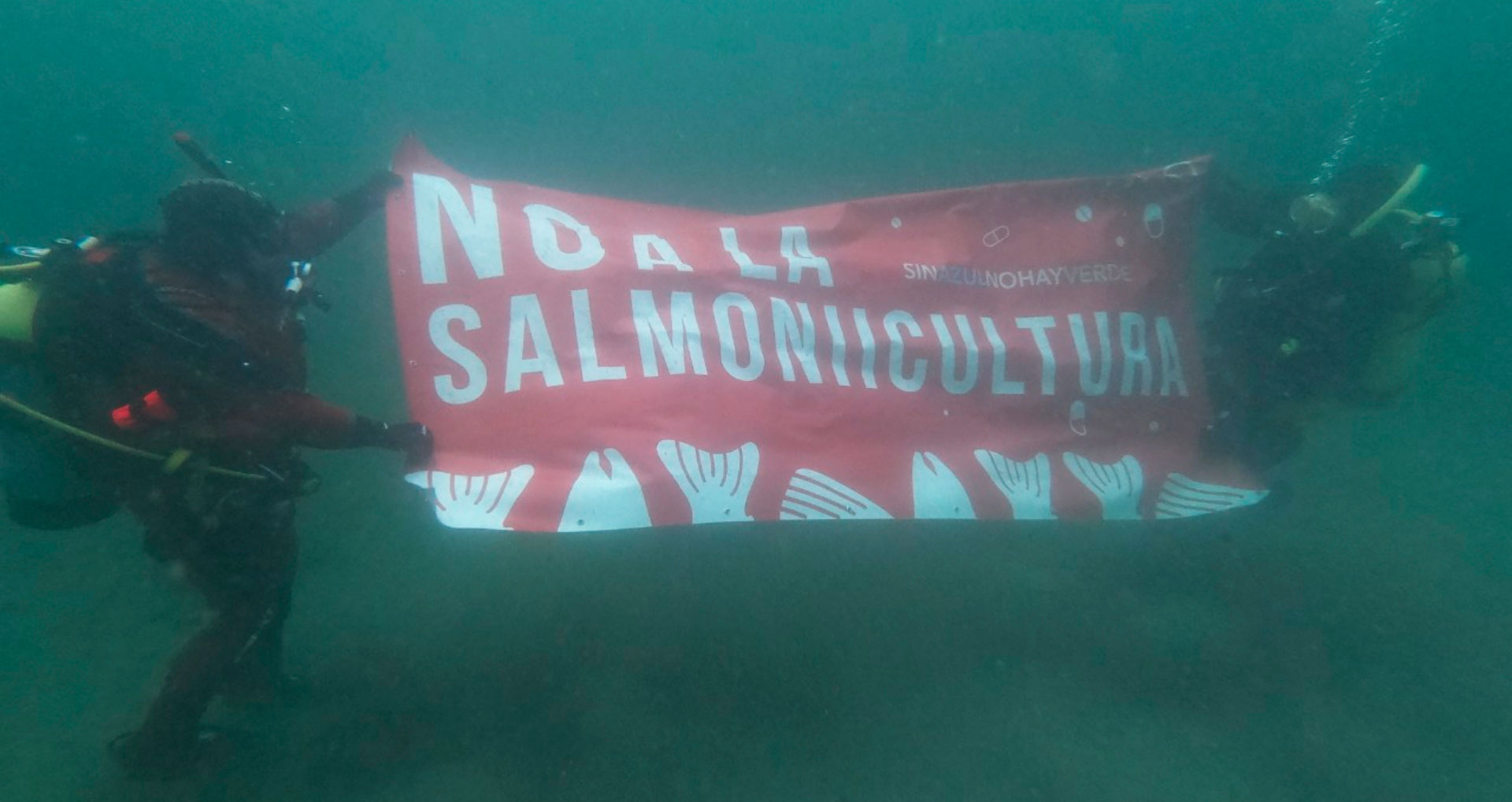
If you think you’re getting good campaign results, make them look even bigger.
We reached out to colleagues across various countries and requested them to broadcast the documentary “Contracorriente” (1) through any available means. The headlines in Argentina’s newspapers proudly declared the international recognition garnered by the Fuegian documentary.
The time had come to change the tone of the narrative: If we kept using the same tone, the story would become predictable and boring. We went from a mood of complaint to one of encouragement and gratitude. We were in the final sprint, and the strategy was to keep the tension high. We held rallies in support of the bill and generated an international strategy to motivate the government to go ahead with its idea of passing the bill. In the weeks leading up to this, organisations from various corners of the world sent letters of support, urging Argentina to take this step and, in certain instances, commending the initiative.
Argentina and the TFAIAS legislators were in the global spotlight. This was the perfect time for a touching and unexpected finale. In a unique event, more than 40 kayakers from Argentina and Chile gathered at the imaginary line that divides both nations to support the bill that sought to ban the industry. Two countries with past rivalries united for a common goal, a powerful image that undoubtedly touched the hearts of the entire continent.
Finally, the day we had been awaiting arrived – July 31, 2021. On this day, the provincial legislature unanimously passed a law banning intensive salmon farming in the waters of TFAIAS. Undoubtedly, a historic global occurrence. It’s worth noting that TFAIAS is the sole province in our country where, due to its unique coastal geography, intensive salmon farming could be established. By restricting this activity within provincial waters, an unanticipated curb on intensive salmon farming across the nation emerged – a twist that caught the industry off guard.
This journey has prompted me to contemplate the necessity for a novel kind of activism, one complemented by individual strategies. We must set aside our logos and egos, allowing our actions to empower others. Additionally, I’ve come to understand the importance of maintaining our individuality amid collective efforts. I am convinced that strength flourishes through unity and diversity.
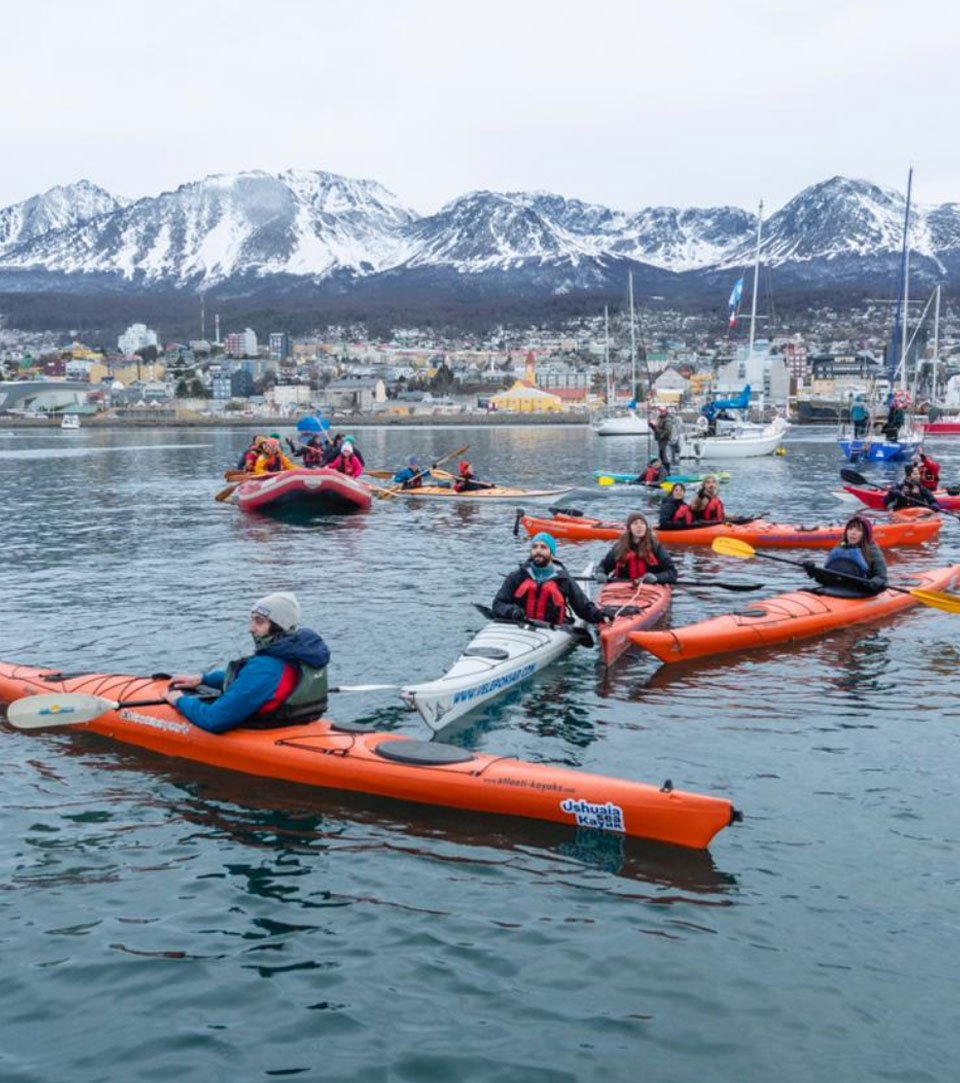
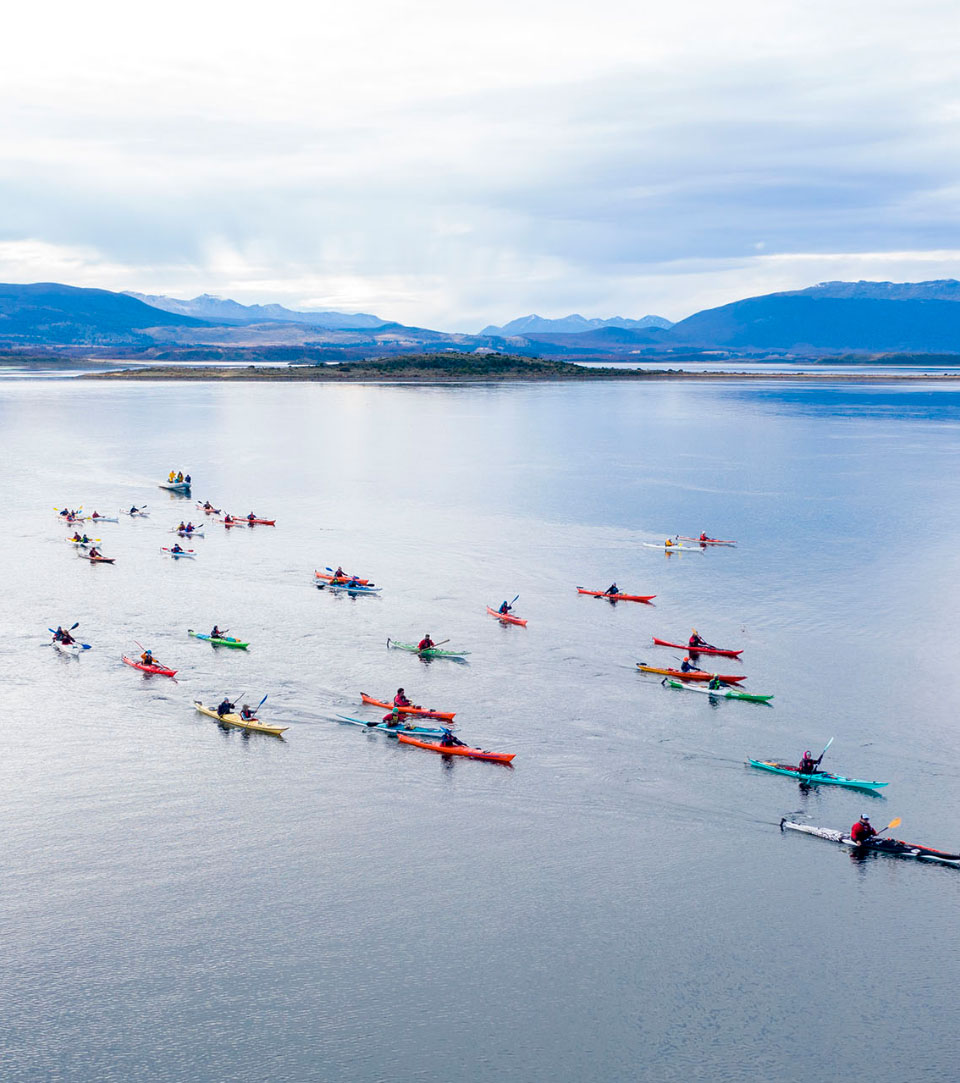
Inspired by the eradication of salmon farming in our nation and the efforts of other global activists like Doug Tompkins, Yvon Chouinard, Alexandra Morton, Frederik Mowinckel, Cristina Mittermeier, Don Staniford, and Corin Smith, among others, we recognized the imperative for collaboration across diverse communities worldwide. In November 2021, a new chapter began. We established the Global Salmon Farming Resistance (GSFR), a worldwide alliance steered by the actions of over 60 NGOs, activists, scientists, and individuals.
Our collective efforts are directed towards supporting local activism and driving policy changes across 13 countries.

